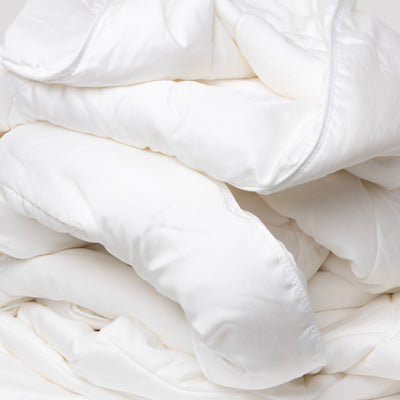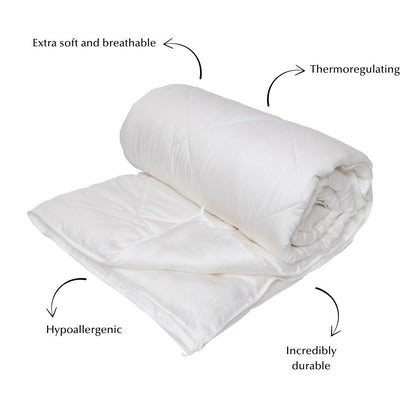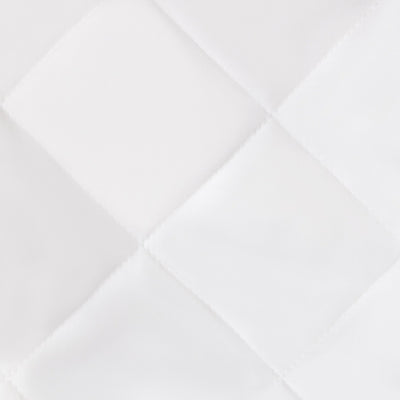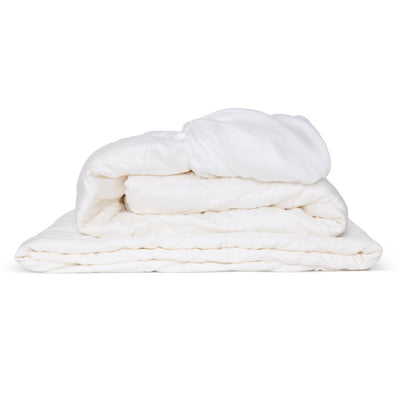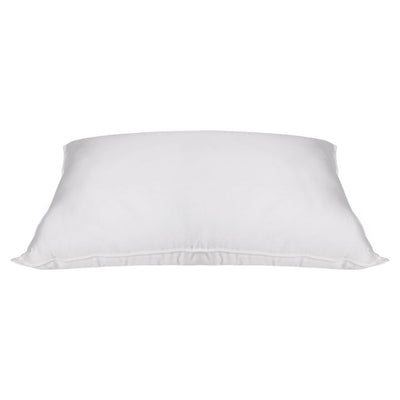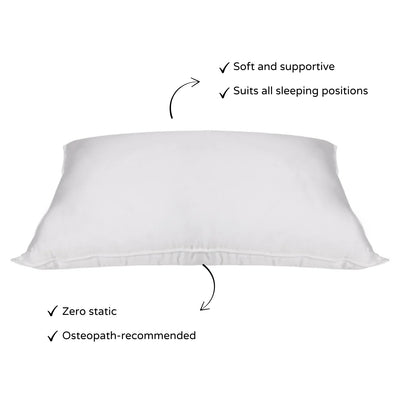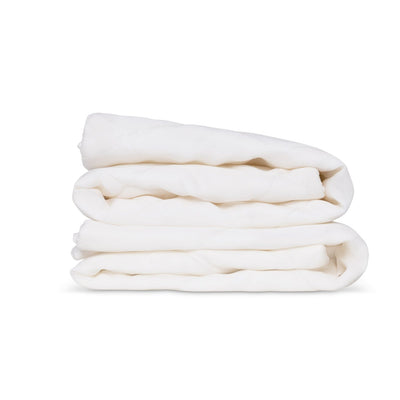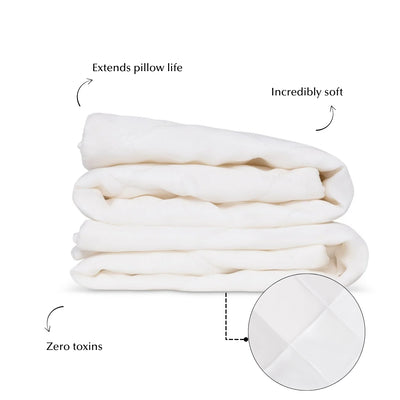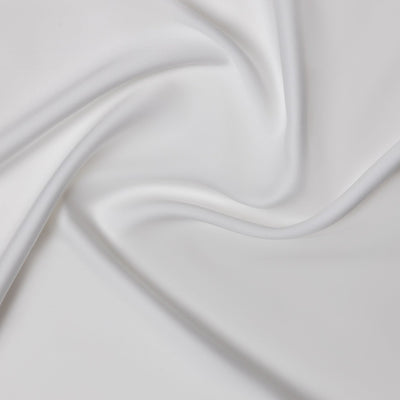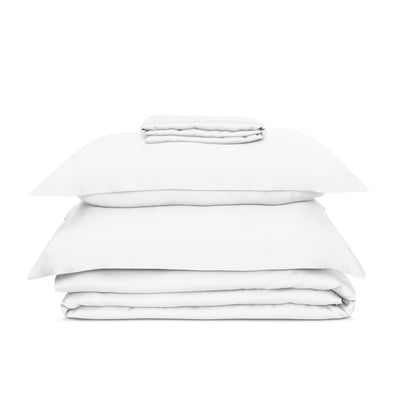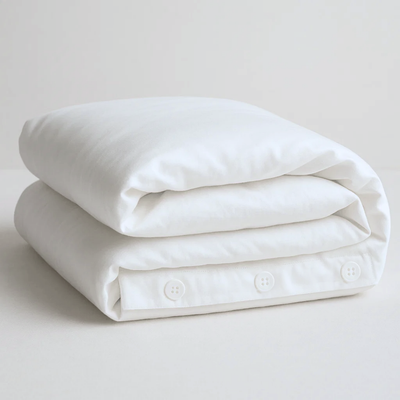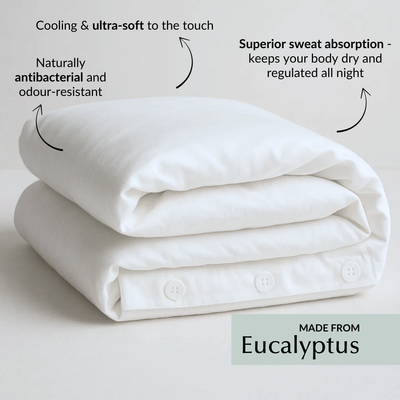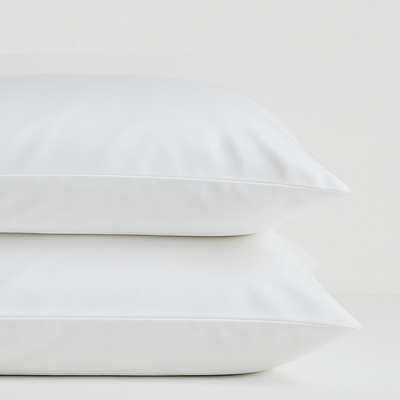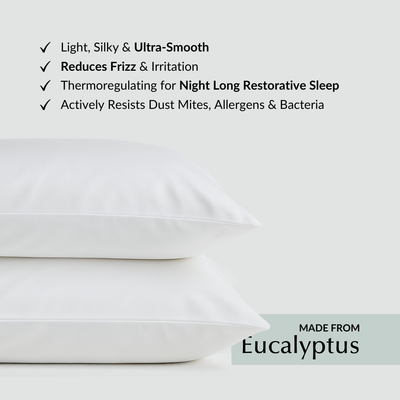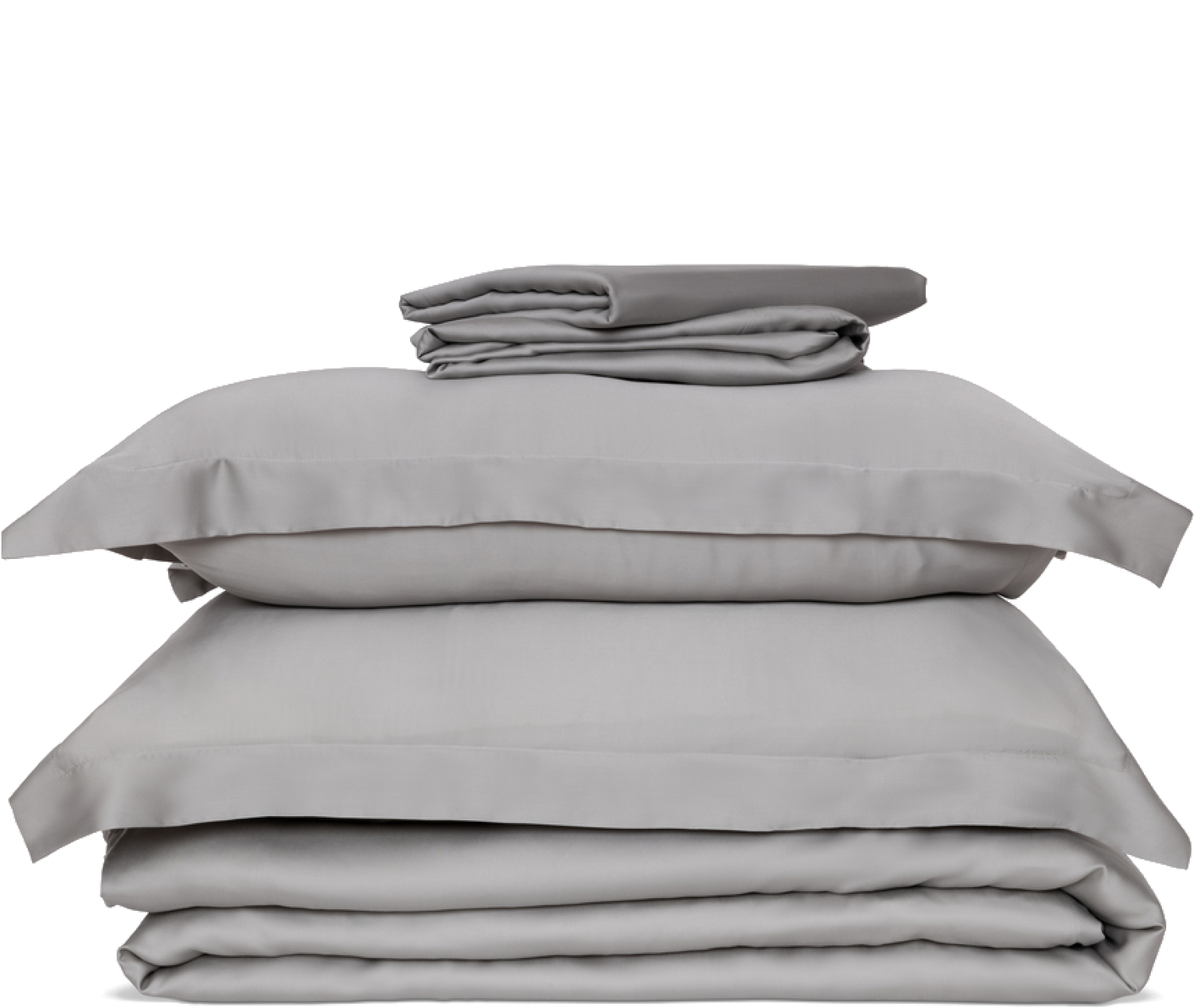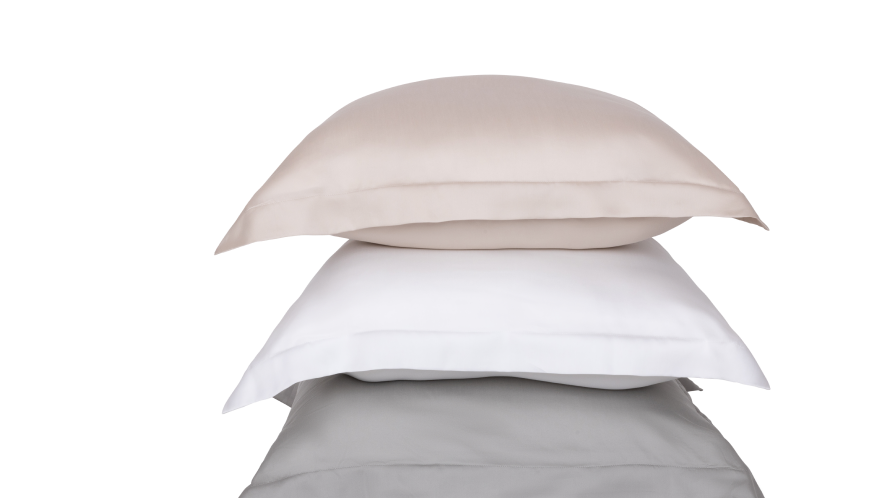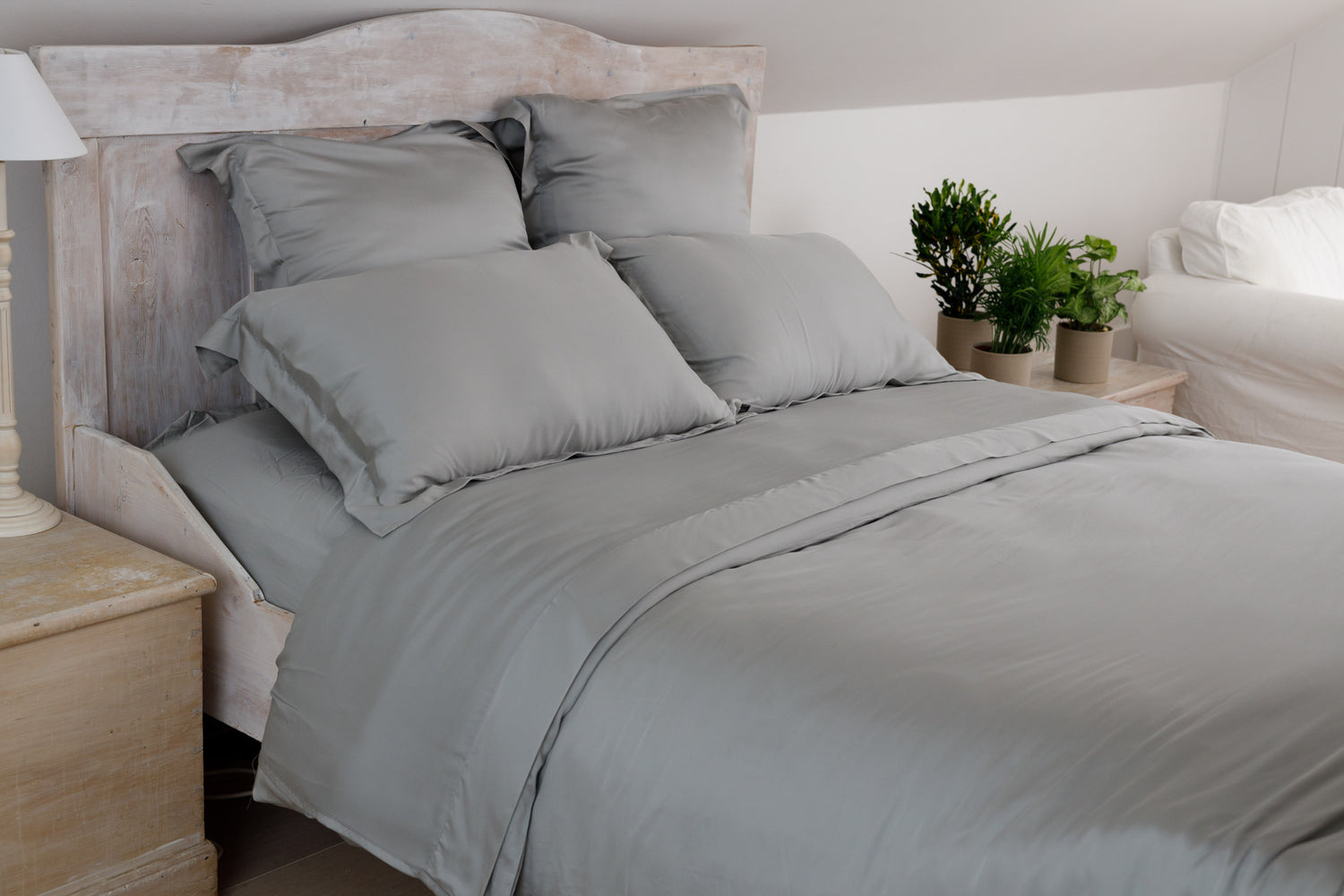We all know the feeling of tossing and turning in bed, restlessly trying to sleep. But did you know your chosen bedding can contribute significantly to the quality and quantity of your night-time rest? So, with this in mind, where better to look than one of the most luxurious and comfortable textiles out there: silk!
According to the results of a study by the National Sleep Foundation based in Virginia, the key to a good night’s sleep is a comfortable bedroom.
In this article, we’ve explored how you can enjoy a better night’s sleep with the introduction of chic and sleek silk bedding, including the benefits of silk sheets and how to identify the best products. Read on to discover the top silk bed sheets benefits and why they’re considered one of the best investments for a restful night’s sleep.

Surprise Your Loved Ones With Silk Bed Sheets
Sleep is vital in maintaining good health, allowing your body and mind to rest, and having you refreshed when you wake. A lack of sleep can impair your ability to concentrate and process thoughts.
Even psychomotor skills can be affected by restless sleep. People living with insomnia have been known to have an impaired ability to drive or use heavy machinery.
Most adults need an average of eight hours of sleep a day, yet up to a quarter of people surveyed in the UK have reported less than five hours of sleep a night.
Why choose silk sheets?
From being luxuriously soft to touch and comfortable to sleep on to giving your bedroom that five-star hotel aesthetic and draping elegantly over the ends of your bed, there are a number of reasons to consider silk bed sheets.
The benefits of silk are plentiful - it is a soft, smooth, and durable fabric. In addition, it is hypoallergenic, breathable, and temperature regulating.
Silk Bed Sheets Are Good For Allergies
Its antimicrobial and antibacterial properties make silk an excellent choice for people with allergies.
This means your silk flat or fitted sheets and bedding are hard at work repelling mites, mould, and other microscopic troublemakers, so you can sleep soundly at night safe in the knowledge you’re free from critters.
Incidentally, studies actually show that allergies are a leading cause of insomnia (with three quarters of allergens linked to the bedroom), a common sleep disorder that affects millions around the world. So, combatting the cause head on and creating an allergen free bedroom environment could improve your overall sleep experience on more than one front.
Silk is naturally hypoallergenic and repels mites, mould, and other creepy crawlies, making the fabric ideal for allergy sufferers. To add icing to the cake, there’s nothing more comfortable than snuggling under a silk duvet cover!
Silk Sheets Have Unrivalled Comfort
They don’t call it “soft as silk” or “silky smooth” for nothing. Silk is a luxurious, soft fabric that looks and feels fragile but is incredibly durable.

Discover Our Silk Bed Sheets That'll Revamp Your Bedroom
Its temperature regulating properties has low heat conduction, helping you stay cool in warm weather and warming you up in cooler climates.
Silk keeps your body cool by wicking away moisture from the body while keeping you warm on cooler nights by trapping air within its threads, making it a popular choice for usage in winter gear.
In addition, it is a lightweight, breathable fabric that allows better air circulation to the skin and hair.
The smooth texture of silk bed sheets will immediately help you unwind after even the most stressful afternoon, while its sleek surface makes it easy to fall into a deep and cosy sleep.
Silk Bedding Is Great For Skin And Hair
Thanks to silk’s unrivalled softness and sleek feel, it’s also excellent for skin health and hair care. Essentially, due to the lack of friction, your hair is allowed to move freely as you sleep, which prevents tangles and breakage.

Rest Easy With Our Plump Bamboo Pillows
In addition, silk doesn’t dry out your skin like other, lower-quality fabrics, and can actually visibly slow down the appearance of wrinkles and the effects of aging. On top of this, silk bedding is also thought to aid skin disorders like eczema and dermatitis. What’s not to love?
A clinical trial on 40 participants found that sleeping on a silk pillowcase significantly reduced the appearance of acne compared to those sleeping on cotton.
The non-irritating properties have made medical silk dressings suitable for use for burn victims and eczema sufferers.
Silk bedding might also help with skin disorders like eczema and topic dermatitis. A 2019 study found that wearing pure silk clothing reduced dermatitis in 30 participants with the annoying skin condition.
Shopping for silk sheets
Now we’ve covered off the benefits of silk sheets, it’s time we shared a few essential considerations you need to make when choosing new bedding.
1. Silk quality and momme weight
One of, if not the most important thing to consider when choosing silk is its overall quality and durability. After all, you don’t want to fork out for new bedding only for it to fall apart in the washing machine.
Momme is a specific measurement when weighing silk fabric, with a higher momme indicating a thicker, denser, and heavier textile. Anything under 20 momme is typically considered lightweight, while 28 momme or more could be regarded as heavy. As a rule of thumb, the higher the momme, the better the silk quality.
2. Thread count
When buying any type of bedding, it’s important to consider the thread count. The thread count of bed sheets refers to the number of combined vertical and horizontal individual threads with each square inch of fabric. For instance, a 300 thread count sheet would have 150 vertical and 150 horizontal threads.
Typically, the higher the thread count, the better quality the bedding. That said, for most people, it does get to a point where you can’t reasonably recognise the increased luxury. So, as a rule of thumb, anything above a 300-thread count can be considered high-quality.
One thing you need to watch out for, though, is when bedding is labelled 2-ply (or 3-ply, etc), which is when a single thread is actually made of two (or more) twisted fibres. So, in the above example, a 2-ply 300-thread count sheet is actually only 150 full threads.
Care and maintenance should always be a consideration when buying new bedding, to make sure you’re really getting the most time and value for money out of your sheets.
After all, bedding is only durable and hard-wearing if it’s correctly looked after – if you mistreat your silk, you’ll find it won’t last nearly as long as it should. So, always check and make sure you’re able to adhere to the manufacturer’s washing instructions, when buying silk sheets.
Along with material quality, thread count, and general care advice, it’s also important to compare different manufacturers’ reputations and reviews. The last thing you want is to buy new bedding and later find out the brand’s got a reputation for ripping customers off.
Keep an eye out for brands with positive customer feedback, and take the time to sift through the reviews, looking closely for comments regarding the comfort, durability, and general satisfaction.
More Affordable In The Long Run
The chances are you might have an expectation of silk to rank among the most expensive bedding fabrics on the market. And while it’s true that silk is typically priced as a premium product, it’s only because you’re getting exceptional quality.
Though it can look and feel fragile, silk is actually an incredibly durable and long-lasting textile that’s sure to outlast any cheap cotton bedding, which can make it a cost-effective option over an extended period.
So, not only will you be enjoying superior comfort throughout your silk bedding’s lifespan, but you’ll also not have to buy new fitted or flat sheets, pillowcases, and duvet covers as regularly – silk is often known to last five times longer than other bedding types, in fact!
Caring for your silk sheets
We’ve touched lightly on silk care and maintenance, but we thought we’d offer a full breakdown of the best ways to look after your new bed sheets to lengthen their lifespan and make sure you get the best value.
There are three stages involved in silk care and maintenance:
- Hand washing or washing on a delicate machine cycle
- Carefully drying and ironing your silk bedding
- Correctly storing your silk
Washing your silk sheets
When it comes to washing your new silk bedding, you’ll need to run them through a cool and gentle spin cycle – or, preferably, even handwash them with cool water. If washing in a machine, it’s also advised to use a laundry net, to prevent your silk from snagging and tearing.
It’s also suggested you avoid harsh or strong detergents or bleach, or else you risk damaging and weakening the silk fibres, which will ultimately result in accelerated wear and tear.
Drying your silk sheets
After washing your silk bedding, try to air dry them flat or hanging in a cool location away from direct sunlight - don’t be tempted to hang your silk on the washing line on a summer’s day! If your sheets are wringing wet, you can lightly squeeze any excess water, making sure not to wring or twist.
In terms of ironing, in short, it’s not recommended. However, if you need to iron your silk, do so on a cool setting and place a cloth between the iron and your sheets to reduce its exposure to heat.
Storing your silk sheets
Finally, once you’ve correctly washed and dried your silk bedding, you’ll need to correctly store it (assuming you’ve already put on a spare set of bed sheets). It’s really quite simple to store silk bedding:
- Hang or lay flat in a cool, dry place away from sunlight.
- Avoid plastic bags for storage, as these can trap moisture (which can lead to mould and mildew).
- Use breathable fabric storage bags to prevent dust damage without suffocating your silk.
Better For Health
As well as being a great choice for skin and hair care, silk is also proven to be generally better for your health than other types of bedding.
Low-quality bedding often contains VOCs (Volatile Organic Compounds). They continue to off-gas harmful chemicals after being removed from their packaging.
What you might not realise when buying cheap, low-quality bedding is that the sheets are likely to contain VOCs (Volatile Organic Compounds), which essentially refers to something that gives off harmful gases after being removed from its packaging. Even worse, many VOCs are carcinogenic and classified as a health hazard by the Environmental Protection Agency.
Cotton and polyester bedding often have high levels of VOCs. Imagine breathing in toxins from your pillowcases and bedding every night. Eeeks.
Better For The Environment
Long demonized for its water consumption, cotton is also one of the most environmentally damaging crops requiring high amounts of insecticides and pesticides.
These chemicals then leak into the surrounding environments and pollute the soil and waterways.
The high levels of greenhouse gases by cotton production have made it one of the most unsustainable textiles, yet cotton remains the most popular fabric of choice due to its low cost.
A study from the World Health Organisation found that about 20,000 individuals living around cotton farms suffer from deformities, cancer, and miscarriages.
Silk has a far smaller environmental footprint. Although not a vegan fabric, the relatively fewer resources used in the production process make it a more eco-friendly choice.
And silk becomes increasingly eco-friendly if you opt for its ethical cousin, made from the sustainable eucalyptus plant.
Eucalyptus silk has all the soft, luxurious, and long-lasting physical properties of traditional silk, without harming silk worms in the process (to make authentic silk, the worms are boiled in their cocoons). Instead, the fabrics is woven from the fibres garnered from eucalyptus wood pulp, with the process requiring 95% less water and 30% less energy than equivalent cotton bedding production.
Breathable and temperature regulating
Another of the many notable benefits of silk sheets are their natural breathability, moisture wicking properties, and temperature regulation, all of which aid sleep quality and comfort. In addition, being lightweight in nature allows for effective air circulation, which contributes to improved skin, hair, and respiratory health.
Temperature regulating bedding has low heat conduction, which helps to keep you cool in the warmer weather, and cosy in cooler climates – meaning you’re covered in summer
Tips On Healthy Sleep
Switching your bedsheets to silk is the first step to ensuring a restful night’s sleep that leaves you refreshed and energized in the morning.

In addition, here are some other good sleeping habits to have.
Make Your Room Comfortable And Dark
Use heavy or blackout curtains to block any light coming in from windows, or if not possible, use an eye mask. If you cannot avoid traffic or background noise, think about using earplugs or playing ambient noise.
Keep the room’s temperature at 15.6 to 19.4 °C (60 to 67 °F). Of course, the sleeping temperature is a personal choice, but doctors recommend this as the best temperature for restful sleep.
Evaluate your mattress and bedding to optimize comfort. If the bed starts to sag or develops lumps, or if you wake up in the mornings feeling achy and sore, it might be a sign that you’ll need a replacement.
Choose your bedding wisely. Top-quality bedding will cost more but will last much longer than inferior cotton sheets.
In addition, comfortable bedding is an essential factor contributing to a good night’s sleep. We spend a third of our lives in bed, making high-quality bedding a worthwhile investment for your physical and mental health.

Going shopping? Check out our handy guide on finding your perfect bed sheet set.
Reduce Stress And Worry
Although it might be easier said than done, reducing stress levels improves sleep quality and duration. Stress and worry have long been linked to causing both acute and chronic insomnia. Learn more about the relationship of stress and sleep here.
Try calming activities like listening to soft music, meditation, or taking a relaxing bath. Breathing exercises can also lower stress levels, heart rate, and blood pressure, all ideal for promoting sleep.
Frequently Asked Questions (FAQs)
If you’re still unsure about the benefits of silk sheets, we’ve answered some of the most commonly asked questions by other like-minded customers.
Are silk sheets suitable for all seasons?
Because silk is temperature-regulating, sheets of this material are ideal for all seasons. The natural technology found within the fibres means you’ll remain warm in the winter and cooler in the summer months.
Can silk sheets help with allergies?
Silk is naturally hypoallergenic, meaning it repels dust, mites, and mould, so is a great bedding choice if you’re prone to common allergens, including eczema and asthma. It’s also temperature regulating and breathable, so you’ll enjoy a comfortable night’s sleep no matter the temperature.
How often should I wash my silk sheets?
Because silk is naturally hypoallergenic, antimicrobial, and resistant to mites and mould, it’ll typically remain cleaner for longer. However, it’s typically recommended you wash your silk sheets as often as you would any other material (every week or two), to ensure you’re always sleeping with the freshest bedding.
Can I use silk sheets with other bedding materials?
You can use silk sheets with other bedding materials, such as cotton, but it’s typically advised to wash them separately (if possible, silk should also be placed in a silk-only wash. Alternatively, place your silk sheets in a mesh laundry bag). This ensures you don’t experience damage to your silk sheets.
Hopefully, we’ve answered all your questions and explored the full range of benefits of silk sheets, so you feel a little more confident exploring your bedding options. Of course, if you’re feeling inspired, why not browse our range of ethical, eucalyptus silk bedding bundles, or find even more insight from our sleep experts over on our blog.

